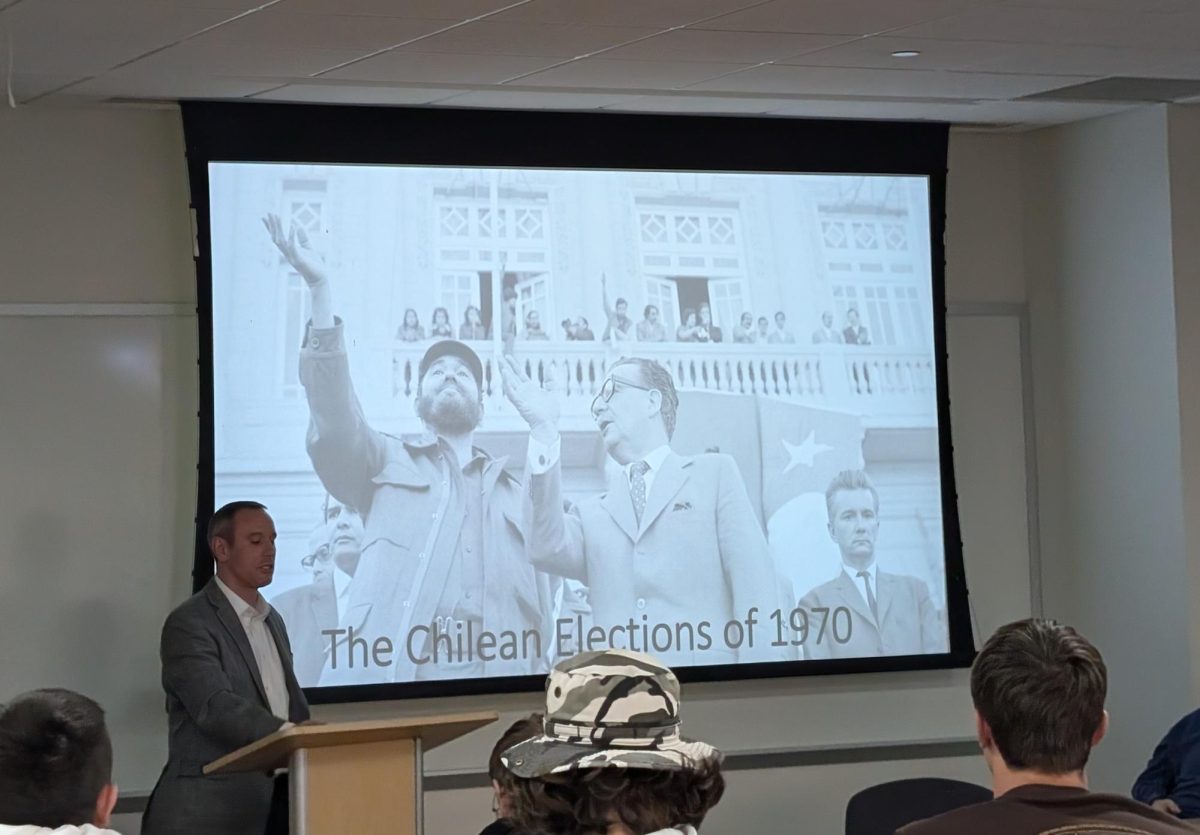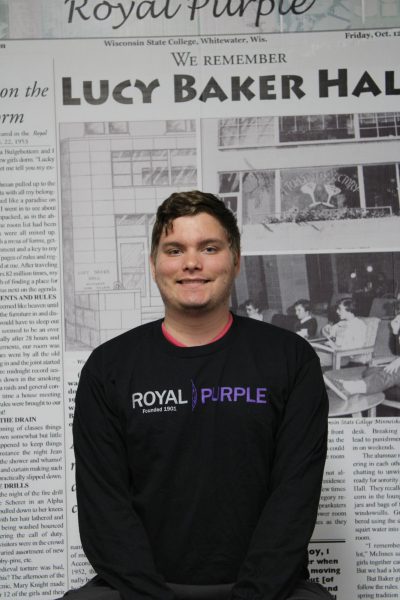Hyland Hall was host to a public presentation titled the History of Contentious Elections Wednesday, Oct. 9 featuring three panelists: Louis Fucilla, Matt McCabe and Micah Wright.
The talks discussed how elections throughout history have had cases of being contentious. The use of contentious politics is considered to be the use of disruptive techniques in order to make a standing. The presentation was held by the College of Letters and Sciences, as well as the Department of History and Department of Politics, Government, and Law.
Wright presented a slideshow involving the Chilean elections of 1970. This election took place on Sept. 4, 1970. The candidates for this election were Salvador Allende, Jorge Alessandri and Radomiro Tomic. Allende won the election by 39,000 votes, with Alessandri close behind him. The United States and the Soviet Union both put money into this election with the help of their intelligence agencies as they tried to influence the election.
Just weeks following that election, the commander-in-chief of the Chilean Army was assassinated, which accentuated the high tensions of the election.
“No assassination helps a lot,” Wright said, considering that the Chilean army is incharge of the country’s defense.
The Home Rule Crisis of 1912-1914 was a part of the presentation as well. The Home Rule Crisis occurred in Ireland and the United Kingdom, two nations with a long and complicated history. The crisis was rooted in politics and even saw military activity.
The presentation also was a platform for talks on how the electoral college works in U.S. elections.
“State’s statewide elections distribute electoral college votes, but you have to get a simple majority under the constitution. If you don’t get a simple majority, the election goes in a house of representatives where representatives are voted by state on the outcome,” Fucilla said.
There have been many instances in history involving elections and politics becoming contentious in the past couple hundred of years. That history will continue as the world keeps voting for their preferred candidate.


